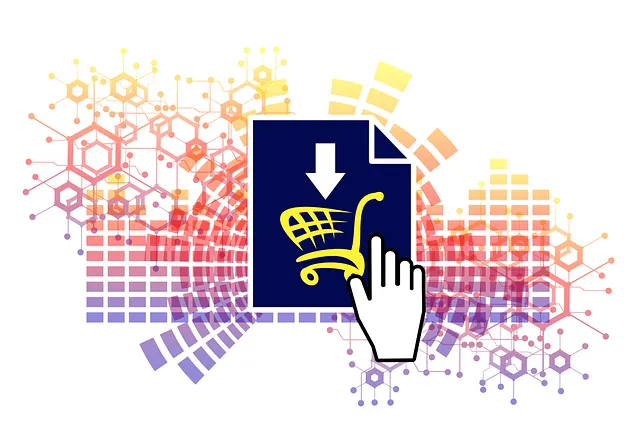In today's digital age, Confidential Data Encryption, especially through tools like Private Internet Access (PIA), is vital for journalists worldwide to protect sensitive information and preserve source anonymity. With strict privacy regulations like GDPR and CCPA in place, PIA offers robust end-to-end encryption, safeguarding data from unauthorized access. This enables journalists to securely handle confidential sources and research remotely, maintaining trust and ensuring their digital footprint remains anonymous while traversing global borders.
In today’s digital era, the security of confidential data is paramount for business professionals. With growing cyber threats and sensitive information at risk, understanding and implementing robust encryption methods are essential. This article explores crucial aspects of data protection, focusing on private Internet access as a vital tool for journalists worldwide to safeguard sensitive material. From recognizing the need for strong encryption to navigating global privacy laws, these insights empower professionals to secure their digital landscapes.
- Understanding Confidential Data Encryption: The Need for Security in the Digital Age
- Private Internet Access: A Tool for Journalists to Safeguard Sensitive Information
- Implementing Strong Encryption Protocols for Business Data Protection
- Global Reach, Local Impact: Ensuring Data Privacy for Journalists Across Borders
Understanding Confidential Data Encryption: The Need for Security in the Digital Age

In today’s interconnected world, digital data is the lifeblood of businesses and journalists alike. However, with great access comes an equally great responsibility to safeguard sensitive information. This is where Confidential Data Encryption steps in as a vital tool for professionals navigating the digital landscape. It’s not just about protecting customer details; it’s about preserving trust and maintaining integrity in an era where private internet access for journalists worldwide has become essential.
With global data privacy regulations in place, like GDPR and CCPA, organizations must ensure they handle confidential data responsibly. Encryption acts as a robust shield against unauthorized access, ensuring that even if data is intercepted, it remains unreadable without the decryption key. This is particularly crucial for journalists working with sources or documents requiring Private Internet Access to maintain anonymity and protect their sources’ identities.
Private Internet Access: A Tool for Journalists to Safeguard Sensitive Information

Journalists worldwide face unique challenges when it comes to protecting confidential data and maintaining source anonymity. In an era where information is power, securing sensitive material is paramount for ethical reporting. Private Internet Access (PIA) emerges as a robust tool designed specifically to safeguard journalists’ digital footprint. This VPN service encrypts internet traffic, ensuring that even if data is intercepted, it remains unreadable to unauthorized parties.
With PIA, journalists can access the web anonymously, protecting their online identity and location. Its advanced encryption protocols prevent any prying eyes from accessing personal or sensitive information, fostering a secure environment for research and communication. For investigators delving into intricate stories, PIA offers a crucial layer of protection, enabling them to navigate the digital landscape with peace of mind, knowing their data is private and secure.
Implementing Strong Encryption Protocols for Business Data Protection

In today’s digital age, where data breaches can have devastating consequences, implementing strong encryption protocols is paramount for businesses to safeguard their sensitive information. Confidential data encryption ensures that even if unauthorized access occurs, the data remains unreadable and unusable without the decryption key. This is especially crucial for journalists worldwide who frequently handle private and classified information. By leveraging robust encryption standards like AES-256, businesses can protect against sophisticated cyberattacks and maintain the integrity of their data.
Private Internet Access (PIA) serves as a powerful tool in this regard, offering end-to-end encryption for all online communications. PIA ensures that data transmitted over networks remains secure, deterring hackers and malicious actors from intercepting sensitive material. This level of protection is vital not just for businesses but also for journalists who need to securely share confidential sources and research without fear of data compromise.
Global Reach, Local Impact: Ensuring Data Privacy for Journalists Across Borders

In today’s globalized world, journalists often operate across borders, accessing and sharing sensitive information from various countries. This presents a unique challenge in ensuring data privacy and security. With confidential data encryption, journalists can protect their sources and stories while working remotely. Tools like Private Internet Access (PIA) offer secure connections, enabling reporters to access encrypted networks regardless of their location.
By utilizing PIA’s global servers, journalists can maintain the privacy of their communications and the data they gather. This is especially crucial when reporting on sensitive topics that may span multiple jurisdictions. With PIA, journalists worldwide can operate with enhanced security, ensuring their sources remain confidential and their work remains unhampered by surveillance or data breaches across borders.
Confidential data encryption is no longer a nicety—it’s a necessity in the digital age. As professionals navigate an increasingly connected world, safeguarding sensitive information is paramount. From journalists using Private Internet Access to protect their sources to businesses implementing robust encryption protocols, these strategies ensure data privacy globally. By embracing strong encryption standards, we can foster a secure environment for free expression and responsible data handling, both locally and internationally. In this era of digital transformation, let’s prioritize security measures that empower us all.
